‘We need to value love more than honour’
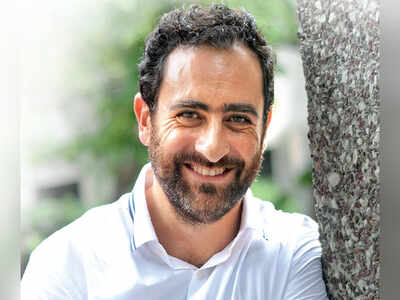
Fadi Zaghmout (Photo by Nikhil Ghorpade)
iNTERVIEW
Fadi Zaghmout, Author and Gender Activist
The writer from Jordan on why censoring writing about sexuality makes no sense and how aspiring writers can develop their style by blogging.
The Dubai-based Jordanian author of three novels, Fadi Zaghmout, is an activist who has explored gender and sexuality in his books, which are set in his home country. His debut novel, Aroos Amman, (translated from Arabic into English as The Bride of Amman by Ruth Ahmedzai Kemp), was a bestseller when it came out in 2012. It broke ground in the Arab world for its bold portrayal of women’s issues and for its sympathetic look at homosexuality. The writer is also a popular blogger, who started The Arab Observer blog in 2006 to talk about gender, sexuality and other social issues that were not addressed by Jordan’s traditional media. Zaghmout’s latest book, Laila and the Lamb, which features a sexually dominating female protagonist, was banned in Jordan in early September. The author spoke to Mirror about censorship, the reasons for his risky choice of subjects and the importance of blogging for new writers.
♦ Your book, Laila and the Lamb was banned in your home country, Jordan. What was the reason for the ban and what do you think about this sort of censorship?
♦ You write on women’s issues and are a gender activist. It is unusual for a man anywhere, let alone in West Asia. How did this happen?
That’s what actually motivated me to start writing on my blog in the first place. I felt that strict gender roles, the lack of body rights and sexual freedoms, and the state of equality between genders affects everyone and makes our lives hardharder. There is a lot to talk about along these lines, but one of the examples would be in the way we construct the gender identity of men to be protectors of family honour and guardians of female behaviour and sexuality. In many cases, this pushes young men to the extent of becoming murderers of their sisters, wives and mothers in order to protect or clean up the family’s perceived honour. I believe that we need to value love more than honour.
♦ You were a popular blogger before you became a novelist. What made you want to write novels?
Blogging was a new-found freedom for many voices in the early 2000s. When I started to tackle issues of body rights and sexual freedoms on my blog, I was fishing in a new ground as these topics were highly censored (unfortunately still censored) in traditional media. I didn’t know what to expect then, so I explored these topics on my blog, slowly at first, without revealing my identity. Later, I felt that these discussions needed to reach a wider audience and I felt it was important to have these stories in our literature deposit. I wanted this alternative discourse to be available in traditional media and get wider access.
♦ You write on themes and characters that disturb the status quo. What are the worst forms of censorship you have faced?
I would say banning my latest book is the worst. After the release of my first book and the wide adoption and support I got without having it banned, I felt there was a space for freedom in the country and for new discourses. I was happy about that. Unfortunately, that wasn’t the case. I got to know first-hand from an official at the media commission that The Bride of Amman passed the censor out of luck but he didn’t approve of it. One time, at a book discussion of a popular book club in the country, which is managed by a conservative group, the conversation was geared towards talking about issues of language and construction of the storyline in the book rather than the actual content and issues it presents. There is also publishers’ censorship. Many of them rejected my latest book. I reached out to dozens before signing up with my current publisher, just before I was about to opt for self-publishing.
♦ How do you manage to stay the course and not give in to being censored?
I say in my books what I think needs to be said and what really matters to me, even at the risk of being censored. I was an activist before becoming a writer and I believe that providing an alternative discourse is a duty.
♦ Has your blog helped you get readers for your novels? Is blogging a complement or a supplement to printed literature?
The blog surely helped, as people got to know my writings through the blog. It built the core of my first fan base, who rushed to buy my first novel when it came out. I think blogging is very important for new writers. It helps them explore their writing styles and they get to build a name before moving to secure publishing contracts. That’s actually my first advice to anyone who aspires to become a writer — start a blog!
Fadi Zaghmout will speak on the panel ‘Evolution of Human Rights – Are We There Yet?’ at the Pune International Literary Festival today. He will also read from his book later.
Fadi Zaghmout, Author and Gender Activist
The writer from Jordan on why censoring writing about sexuality makes no sense and how aspiring writers can develop their style by blogging.
The Dubai-based Jordanian author of three novels, Fadi Zaghmout, is an activist who has explored gender and sexuality in his books, which are set in his home country. His debut novel, Aroos Amman, (translated from Arabic into English as The Bride of Amman by Ruth Ahmedzai Kemp), was a bestseller when it came out in 2012. It broke ground in the Arab world for its bold portrayal of women’s issues and for its sympathetic look at homosexuality. The writer is also a popular blogger, who started The Arab Observer blog in 2006 to talk about gender, sexuality and other social issues that were not addressed by Jordan’s traditional media. Zaghmout’s latest book, Laila and the Lamb, which features a sexually dominating female protagonist, was banned in Jordan in early September. The author spoke to Mirror about censorship, the reasons for his risky choice of subjects and the importance of blogging for new writers.
♦ Your book, Laila and the Lamb was banned in your home country, Jordan. What was the reason for the ban and what do you think about this sort of censorship?
They said that it describes sexual intercourse, has foul language and foreign idea. I think that banning books is an outdated practice in the internet era. It harms freedom of speech, creativity, writers, and the book industry at large at a time when Jordan is going through a financial crisis and is desperate to build and support a creative industry. It is also silly because the ban may stop the printed book from getting into the country, but the ebook is accessible online for anyone to read on their phone screen. Besides, I don’t understand the moral discourse behind banning a piece of literature that provides a critique of the intimate relationship between the two genders when the internet is widely open in the country and people can access porn from anywhere.
♦ You write on women’s issues and are a gender activist. It is unusual for a man anywhere, let alone in West Asia. How did this happen?
That’s what actually motivated me to start writing on my blog in the first place. I felt that strict gender roles, the lack of body rights and sexual freedoms, and the state of equality between genders affects everyone and makes our lives hardharder. There is a lot to talk about along these lines, but one of the examples would be in the way we construct the gender identity of men to be protectors of family honour and guardians of female behaviour and sexuality. In many cases, this pushes young men to the extent of becoming murderers of their sisters, wives and mothers in order to protect or clean up the family’s perceived honour. I believe that we need to value love more than honour.
♦ You were a popular blogger before you became a novelist. What made you want to write novels?
Blogging was a new-found freedom for many voices in the early 2000s. When I started to tackle issues of body rights and sexual freedoms on my blog, I was fishing in a new ground as these topics were highly censored (unfortunately still censored) in traditional media. I didn’t know what to expect then, so I explored these topics on my blog, slowly at first, without revealing my identity. Later, I felt that these discussions needed to reach a wider audience and I felt it was important to have these stories in our literature deposit. I wanted this alternative discourse to be available in traditional media and get wider access.
♦ You write on themes and characters that disturb the status quo. What are the worst forms of censorship you have faced?
I would say banning my latest book is the worst. After the release of my first book and the wide adoption and support I got without having it banned, I felt there was a space for freedom in the country and for new discourses. I was happy about that. Unfortunately, that wasn’t the case. I got to know first-hand from an official at the media commission that The Bride of Amman passed the censor out of luck but he didn’t approve of it. One time, at a book discussion of a popular book club in the country, which is managed by a conservative group, the conversation was geared towards talking about issues of language and construction of the storyline in the book rather than the actual content and issues it presents. There is also publishers’ censorship. Many of them rejected my latest book. I reached out to dozens before signing up with my current publisher, just before I was about to opt for self-publishing.
♦ How do you manage to stay the course and not give in to being censored?
I say in my books what I think needs to be said and what really matters to me, even at the risk of being censored. I was an activist before becoming a writer and I believe that providing an alternative discourse is a duty.
♦ Has your blog helped you get readers for your novels? Is blogging a complement or a supplement to printed literature?
The blog surely helped, as people got to know my writings through the blog. It built the core of my first fan base, who rushed to buy my first novel when it came out. I think blogging is very important for new writers. It helps them explore their writing styles and they get to build a name before moving to secure publishing contracts. That’s actually my first advice to anyone who aspires to become a writer — start a blog!
Fadi Zaghmout will speak on the panel ‘Evolution of Human Rights – Are We There Yet?’ at the Pune International Literary Festival today. He will also read from his book later.
You Might Also Like
From around the web
More from Pune Mirror
GALLERIES View more photos














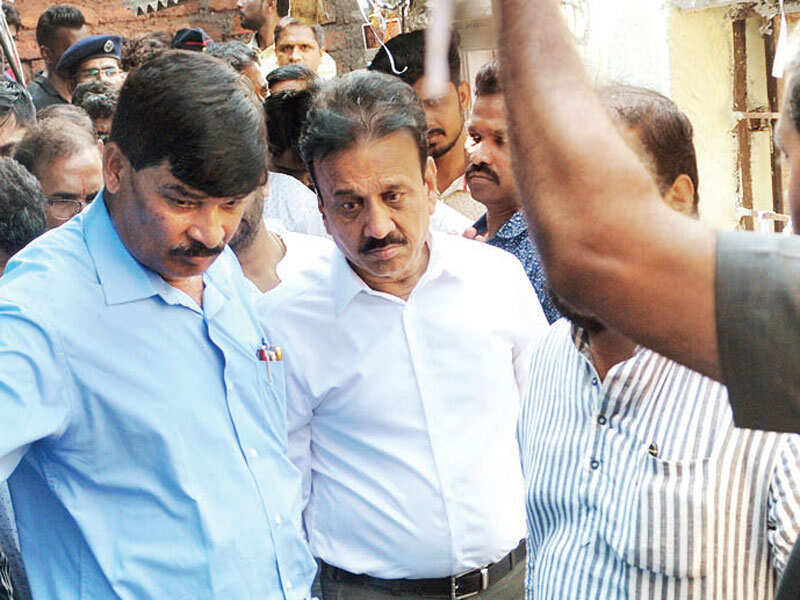
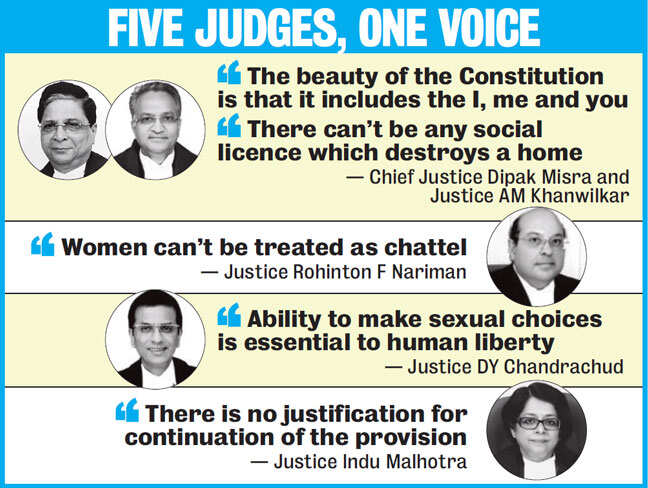
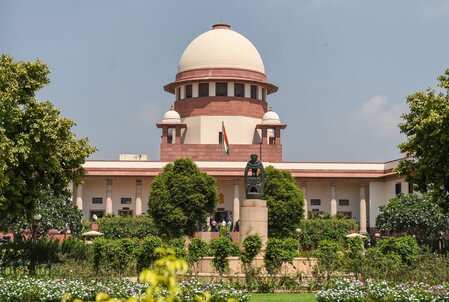
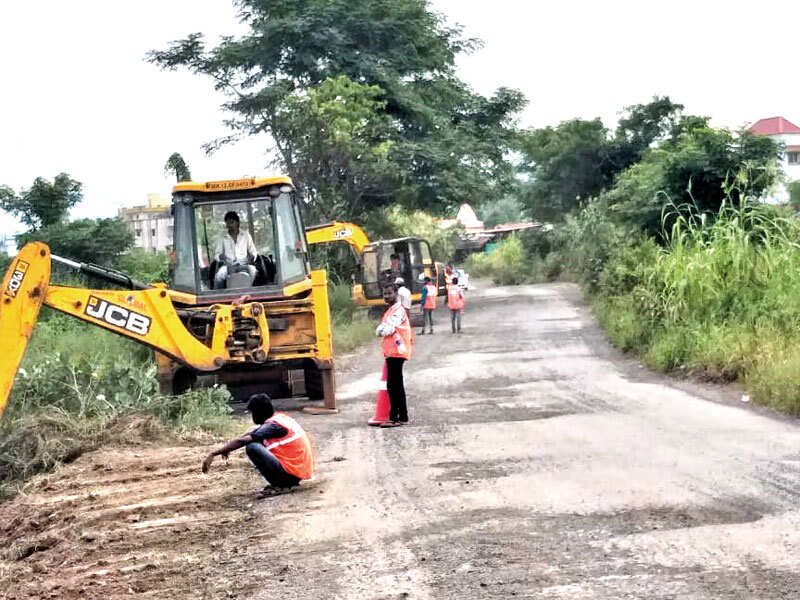






Recent Messages ()
Please rate before posting your Review
SIGN IN WITH
Refrain from posting comments that are obscene, defamatory or inflammatory, and do not indulge in personal attacks, name calling or inciting hatred against any community. Help us delete comments that do not follow these guidelines by marking them offensive. Let's work together to keep the conversation civil.